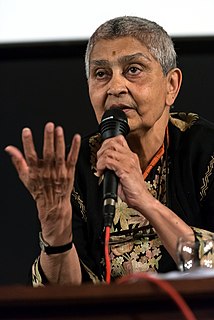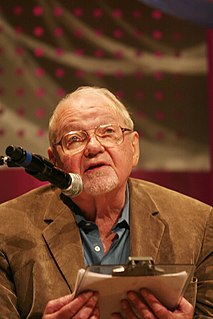This biography of a living person needs additional citations for verification .(July 2010) (Learn how and when to remove this template message) |
John Randolph Beverley II is a literary and cultural critic at the University of Pittsburgh, where he is a professor of Spanish and Latin American Literature and Cultural Studies as well as an adjunct professor in the English and communication departments. He was influential in co-founding the Latin American subaltern studies [1] group as well as a founding member of the Graduate Program in Cultural Studies at the University of Pittsburgh.
He is a U.S.-based Latin Americanist cultural and literary theorist. In his work he is committed to revolutionary changes that would end the differences between rich and poor in Latin America and make a new and revolutionary democratic culture corresponding to the people's economic and political democratic revolutions. He has a dual emphasis on democracy and the people—-the workers, the masses, los de abajo, the multitude, and what he designates the subalter.
Born into a prosperous Anglo American family residing in South America, he became sensitive to the poverty and misery in which so many lived even as he had all the benefits of his class and caste. In this sense, his life goal has been to negate such differences. As a non-Hispanic student of Spanish literature, he gradually turned to Latin American themes, within larger contexts. At Princeton and then at the University of California, San Diego, he focused on Spanish Peninsular literature of Américo Castro, Carlos Blanco Aguinaga, and Claudio Guillén; and studied Fredric Jameson who was developing methods for a Marxist approach to cultural and literary phenomena. He published a Marxist interpretation of Gongora's Soledades as his dissertation and first book.
The center of his interests shifted from Spain to Latin America, impelled by the political hopes of the 1960s and 1970s. He sought the application of his understanding of the Baroque to the development and structural situation of literature as a colonial and postcolonial institutions in the Americas. As a self-proclaimed Marxist and activist,[ citation needed ] he developed his literary work in relation to the Institute of Ideologies and Literatures in Minnesota, seeking to find progressive dimensions of literature and criticism that transcended state-centered powers of structure. That effort culminated in his Del Lazarillo a Sandinismo and his book with Marc Zimmerman, Literature and Politics in the Central American Revolutions.
Beverley has written a number of texts on the testimonio, which can concern popular representation in literature and politics. He has taken the position that Latin America's own ideological structures have prevented the area's most progressive intellectuals from grasping their own reality. With the end of the cold war, the defeat of the Sandinistas and the full emergence of postmodern perspectives in Latin Americanist discourse, he produced a collection entitled The Post-Modern Debate in Latin America. While working on that text, he along with Ileana Rodríguez and others, co-founded the Latin American Subaltern Studies group, seeking a new post-cold war/post-sandinista post/postmodedrn theorization of the relations between culture, literature and political possibility, which he and other members (following Ernesto Laclau and others involved in cultural studies theory, but above all the South Asian Subaltern studies Group—at first through Gayatri Spivack and then more directly through R. Guha and others) saw as centered not directly on social classes but on the social groups and movements that struggled for empowerment and expression in the Americas.
In Against Literature, he writes from a subalternist perspective, and considers literature and existing literary studies (even leftwing versions) as implicated in hegemonic modernization projects at odds with subaltern positions. This view, now developed in relation to developing Latin American cultural studies discourse and in relation to the full emergence of globalization as the new macro-narrative of the post-postmodern period, became the subject of Subalternity and Representation (1999). The Latin American subaltern group dissolved early in the 21st century, but Beverley has continued working, co-developing a Pittsburgh University Press book series called “Illuminations: Cultural Formations of the Americas,” publishing a new collection on Cuban literature, re-publishing his book with Hugo Achugar on testimonio, and completing Testimonio: The Politics of Truth (2004). In Latin Americanism after 9/11 (2014), he argues for a new situation for Latin America in the emerging global order, especially in view of Hugo Chávez, Evo Morales and other new left figures who have challenged older paradigms of left and right of previous decades. He critiques what he considers the failed politics of Zapatismo, and the “neo-conservative turn.”







